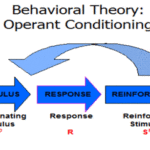
Operant conditioning is different to classical conditioning as described by Pavlov in that a desirable behaviour is reinforced and an undesirable behaviour, punished. It is a highly specialised form of learning known as instrumental learning and is used in many contexts including good parenting and even training animals. While the technique of operant conditioning […] Read more »



